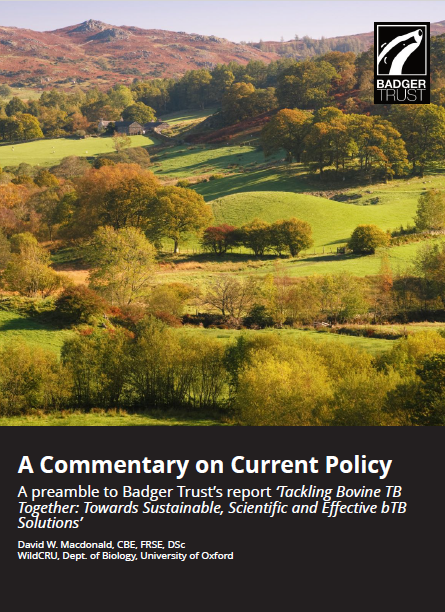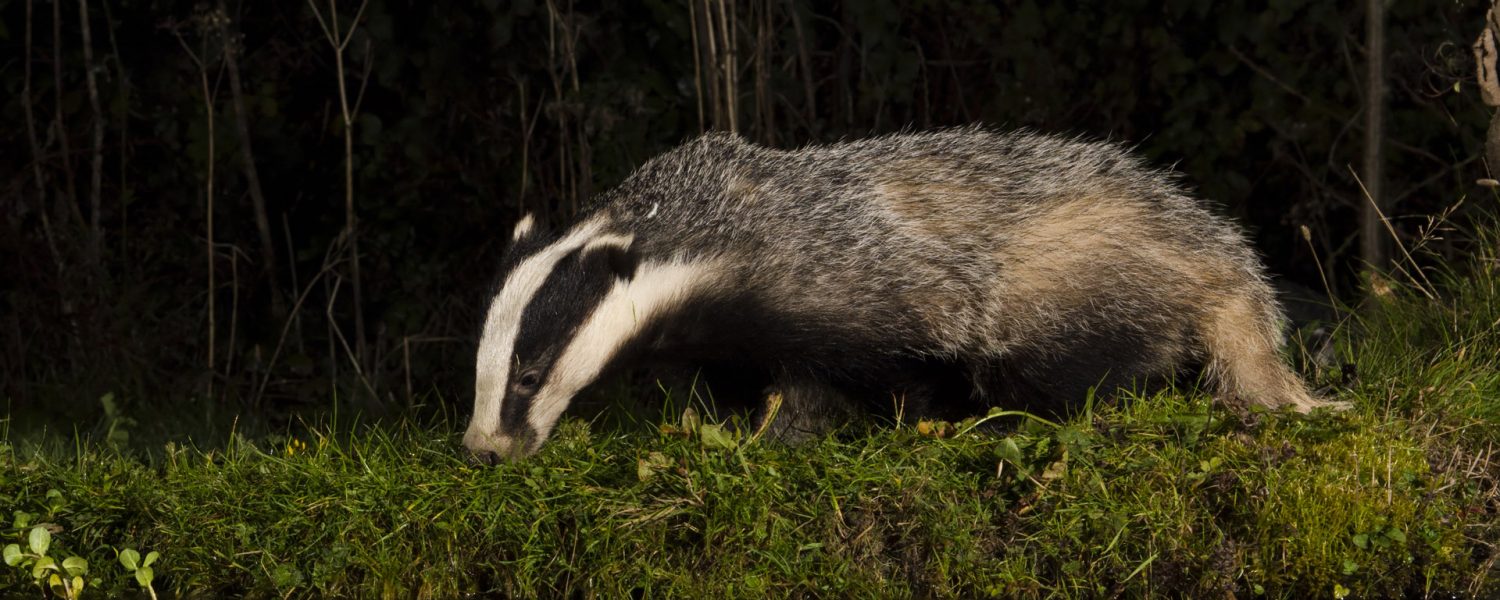 Professor David MacDonald, founder and Director of the Wildlife Conservation Research Unit at the University of Oxford has reviewed the latest science on badger culling in a new report, ‘A Commentary on Current Policy’ for the Badger Trust charity.
Professor David MacDonald, founder and Director of the Wildlife Conservation Research Unit at the University of Oxford has reviewed the latest science on badger culling in a new report, ‘A Commentary on Current Policy’ for the Badger Trust charity.
MacDonald, is one of a group of senior scientists at Oxford who advised on and helped instigate the Randomised Badger Culling Trials (RBCT) from the mid 1990’s, work that has been used to inform government policy on bTB ever since. From 2010, this policy has been to carry out intensive widespread badger culling in the west of England, and it has resulted in the (often inhumane) death of around an estimated 250,000 badgers starting in 2013.
Macdonald who informed but did not take part in the controversial experiments reflects in his commentary, “…it was ‘interesting’ that exactly the same scientific evidence was used to decide, on the one hand, for a badger cull in England, but, on the other, against a cull in Wales”.
Until now, no senior academic has written publicly about the single large-scale published analyses (Vet Record, March 2022) that looked at badger culling outcomes, or about the new uncertainty over the long-accepted analyses of the RBCT highlighted in a scientific preprint by Torgerson et al. 2023 (now published, Torgerson et al 2024). Usefully, MacDonald does both, and has also had a close look at another pre-print by The Animal and Plant Agency (APHA) (Birch et al. 2023), which considers the efficacy of what it calls the ‘badger culling policy’, which is actually a wide programme of cattle testing and movement control measures, of which badger culling was one, rolled out gradually from 2016.
What are the most important points from this new inciteful commentary? Here are several important views that he has expressed:
Walking his way through the publication of Langton et al (2022) in Vet Record, MacDonald recounts the immediate rejection by Defra & the Chief Veterinary Officer of the conclusions of the paper, the subsequent admission of by Defra of their own errors, and the resulting impasse.
Of the Torgerson et al (2023) preprint, MacDonald writes “They found that the conclusions of the 2006 analysis are sensitive to the method of analysis used. Indeed, the analytical approach that Torgerson’s team judge to be the most obvious for the purpose, provides no statistical evidence for a culling effect, whereas a model comparison method aimed at selecting a model with the best out-of-sample predictive power indicates that the best model does not include the treatment effect of killing badgers. According to those statistics, killing badgers during the RBCT made no difference to the herd breakdowns, whether measured by either OFT-W or by OFT-W + OFTS.”
Importantly and from a practical governmental perspective he adds:
“Policy-makers reflecting on the statistical merits of these findings should hold in mind John Bourne’s quote (above) about the practical usefulness of badger culling even when the ISG accepted their statistical robustness.”
Of the Birch et al (2023) preprint, MacDonald says that the APHA “… do not claim to have measured the consequences of badger culling, and indeed they have not”, and, “there is still no clearcut answer regarding the impact of this approach to badger culling on controlling bTB in cattle or, more broadly, whether it’s worth it.”
David MacDonald’s new commentary is, therefore, a welcome review of the latest developments in badger culling science and well worth a read alongside a much longer general report on badger culling produced by the Badger Trust, ‘Tackling bovine bTB together‘. Both reports are available from the Badger Trust website.
Badger scientists at Oxford University who dominated the badger culling review, planning and experiments between 1995 and 2007 have been reluctant to speak out in a comparable way since the 2016 cull roll outs, some because they moved away, others perhaps because they remained involved. The controversy surrounding badger culling may be the reason some steer away from engaging on various elements of the science and the destructive mass killing of Britain’s favourite sentient animal and its young cubs, most of whom are completely healthy. It would be great to see more of the scientists who were involved in the RBCT engage in a similar open way, acknowledging the uncertainty and new learning that suggests badger culling was always irrelevant and unnecessary.
Looking at the big picture, it is worth noting that Defra still have no simple explanation of their concerns about the published 2022 study that showed that badger culling did not reduce bTB in cattle between 2013-2019, let alone a peer-reviewed rebuttal. Following the change of DEFRA leadership from Richard Benyon to Robbie Douglas-Miller (in November 2023), they have again written (January 2024) refusing to engage on the matter. Perpetual secrecy and lack of engagement that bears similarity to the sub-postmasters scandal. Defra still refuse to release their ‘secret’ and withheld data, and thus-far have not produced their own published science to show that badger culling is effective in reducing bTB in cattle. Meanwhile, government Ministers bandy about unpublished percentages of so-called benefit.

